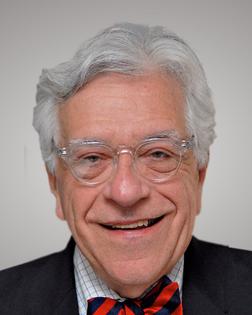The God Squad: Short Psalms for long study
This week, I continue to try to make good on my promise to help M, who asked me for help in developing study guides for the Psalms for her wonderful Bible study group at the Good Shepherd Lutheran Church in Harrisburg, Pennsylvania.
Today, we read and study Psalm 131:
Lord, my heart is not haughty, nor mine eyes lofty: neither do I exercise myself in great matters, or in things too high for me.
2 Surely I have behaved and quieted myself, as a child that is weaned of his mother: my soul is even as a weaned child.
3 Let Israel hope in the Lord from henceforth and for ever. (KJV)
What this Psalm means:
Every old guy like me has had the experience of asking some kid who can’t even drive a car to program their phone or computer. We just do not know what we need to know to manage the stuff of the modern world. What is interesting to me and what produces a wide grin in my soul is that what we humbly accept in trying to understand machines we arrogantly do not accept in trying to understand God.
We want to know right now how a good, all-powerful God can exist in a world with so much evil? We want to know right now if goodness is ultimately rewarded and evil ultimately punished? We want to know right now if death is really the end of us? We want to know right now if God hears our prayers? We want to know right now if angels are real? We want to know right now God’s plan for us?
Instead of approaching these ultimate questions with the patience we offer in learning how to use our smartphones we are impatient with God and with our clergy who are trying to help us understand how to program our lives. Indeed, many clergy who read this column have shared with me their frustration at not being able to answer their congregants’ and parishioners’ big questions in small answers.
I used to respond to the theologically impatient, “Hey, give me a break. I’m in sales not management!” They laughed but that response did not satisfy them. Rabbi Hillel’s answer to the question of the meaning of the Torah was just this, “What is hateful to you, do not do to another person —now go and study.” Good work Rabbi Hillel. Psalm 131 is also a perfect antidote to theological impatience and it accomplishes its task in only three verses.
The first verse: Lord, my heart is not haughty, nor mine eyes lofty: neither do I exercise myself in great matters, or in things too high for me. Is a plea for humility. It is a confession to God and our own souls that, to quote Piglet, “It’s hard to be brave when you are a very little animal.”
We are little animals and there is a limit to what a little animal can know. Scientific breakthroughs have given us a completely inflated notion of our own power and intelligence, but the key to spiritual growth is to deflate our egos. It involves understanding that some questions are just out of our league. It also requires understanding the difference between intelligence and wisdom. Intelligence is knowing what is. Wisdom is knowing what matters. People can be smart when they are young, but they cannot be wise until they are old. Age brings with it a wise patience with all the questions we cannot answer.
The French existentialist philosopher Gabriel Marcel in his two-volume work, "The Mystery of Being," explained the distinction, “A problem is something that I meet over and against myself. I find it complete before me; and hence I can lay siege to it and solve it. But a mystery is something in which I am myself involved and hence the distinction between what is in me and what is over and against me loses it meaning.”
Problems are not about us and mysteries are all about us. The responses to mystery (not the solutions) depend upon what we already believe. When we confront the mysteries of existence, we are confronting ourselves. Our way out of them is always through them and through our troubled souls.
When we ask about the fate of goodness in the world, our response depends upon what we already believe about goodness. If you believe, with Plautus (died 184ce), homo homini lupis, “Each man is the wolf of his neighbor” your response to evil will be different than it would be if you believed that we are made in the image of God. Problems disappear when we answer them. Mysteries do not disappear when we respond to them. Every God question is a mystery.
Darn it! I can’t finish even a three-verse psalm in one column. I am a failure.
See you next week.
(Send ALL QUESTIONS AND COMMENTS to The God Squad via email at godsquadquestion@aol.com. Rabbi Gellman is the author of several books, including “Religion for Dummies,” co-written with Fr. Tom Hartman.)
©2021 The God Squad. Distributed by Tribune Content Agency, LLC.
(c) 2021 THE GOD SQUAD DISTRIBUTED BY TRIBUNE MEDIA SERVICES, INC.










